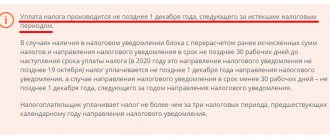Assignment of punishment
The main form of implementation of criminal liability is criminal punishment
- a measure of state coercion imposed by a court verdict on a person found guilty of committing a crime.
In essence, punishment is punishment, retribution by the state for what it has done. Punishment pursues the following goals
: 1) restoration of social justice; 2) correction of the convicted person; 3) preventing the commission of new crimes.
The current Criminal Code of the Russian Federation includes 12 types of punishments, which are divided into three groups:
- basic (applied independently - punishments 4, 5, 6, 7, 8, 9, 10, 11 and 12 from the list below);
- additional (used only in combination with the main ones - 3);
- punishments applied both as main and additional ones (1 and 2).
Types of punishments:
1. Fine
– a monetary penalty in the amount of two thousand five hundred to one million rubles or in the amount of wages or other income of the convicted person for a period of two weeks to five years. When determining the amount of the fine, the severity of the crime, the financial status of the convicted person and his family, as well as the possibility of the convicted person receiving wages are taken into account. The court may impose a fine with payment in installments for up to three years. In case of malicious evasion of payment of a fine, it is replaced by compulsory labor, correctional labor or arrest. The possibilities for applying a fine in the Criminal Code of the Russian Federation are quite extensive. This type of punishment is provided for and sanctioned by almost every third norm of the Criminal Code.
2. Deprivation of the right to hold certain positions or engage in certain activities
– consists of prohibiting the convicted person from holding positions in the civil service, in local government bodies, or from engaging in certain professional or other activities (medical, pedagogical, in the field of trade and public services, etc.). As a main one, this type of punishment can be imposed for a period of from one year to five years, and as an additional one - for a period of six months to three years.
3. Deprivation of a special, military or honorary title, class rank or state awards
- can only be imposed as an additional punishment for serious or especially serious crimes and is mainly associated with the moral impact on the convicted person. Special ranks exist in the Ministry of Internal Affairs, the penal system, and the customs service. Military ranks are established by the Federal Law “On Military Duty and Military Service”. Class ranks are assigned to state civil servants, prosecutors, and bailiffs.
4. Mandatory work
- a type of punishment previously unknown to our legislation, consists of the convicted person performing free community service during his free time from work or study. The type of work and the facilities at which they are performed are determined by local government bodies in agreement with the penal inspections (as a rule, these are works on the improvement of a populated area that do not require special skills and knowledge). The duration of compulsory labor is set in the range from 60 to 240 hours, and they are served no more than four hours a day; in case of malicious evasion, they are replaced by restriction of freedom, arrest, or even imprisonment (one day for eight hours of compulsory labor).
Mandatory work cannot be assigned:
- disabled people of the first group;
— pregnant women and women with children under three years of age;
- military personnel undergoing military service upon conscription, as well as under contract in the positions of privates and sergeants.
5. Correctional work
- are assigned to a convicted person who does not have a main place of work, and consist of deducting from his earnings to the state income from five to twenty percent. The duration of this punishment ranges from two months to two years. In case of malicious evasion from correctional labor, it is provided for its replacement with more severe types of punishment. This type of punishment cannot be assigned to the same circle of persons who are not assigned compulsory labor.
6. Restriction on military service
- is a new type of punishment, similar in content to correctional labor. Applies to convicted military personnel undergoing military service under a contract for a period of two months to three years for crimes against military service. Deductions are made from the convict's monetary allowance to the state in an amount not exceeding 20%. In addition, while serving a sentence, a convicted person cannot be promoted to military rank or position, and the term of punishment is not counted towards the length of service (for the assignment of the next military rank).
7. Restriction of freedom
– is also a new type of punishment, the application of which in Russia does not have sufficient experience. It consists of keeping a convicted person, who has reached the age of 18 at the time of the court’s sentencing, in a special institution without isolation from society under conditions of supervision over him. Restriction of freedom is imposed: a) for those convicted without a criminal record for intentional crimes - for a period of one to three years; b) convicted for crimes committed through negligence - for a term of one to five years. In case of malicious evasion from serving this punishment, it is replaced by imprisonment. Restriction of freedom cannot be assigned to: disabled people of the first and second groups; pregnant women and women with children under 14 years of age; women and men who have reached the general retirement age; military personnel undergoing military service upon conscription.
8. Arrest
- another new type of punishment, its essence consists in keeping the convicted person in conditions of strict isolation from society for a period of one to six months. Punishment in the form of arrest must be served in special arrest houses, the conditions in which are similar to prison ones. Arrest is not imposed on persons under 16 years of age at the time of sentencing, as well as pregnant women and women with children under 14 years of age.
9. Confinement in a disciplinary military unit
– appointed to military personnel undergoing military service by conscription, as well as under contract in the positions of privates and sergeants for a period of two months to three years for crimes against military service. Thus, the convicted person does not cease to be a military serviceman - he continues to perform military service, but under specific conditions. In this case, the period of serving the sentence is not counted towards the period of active service.
10. Imprisonment for a specified period
– consists of isolating the convicted person from society by sending him to:
— colony-settlement;
— a correctional colony of general, strict or special regime;
- prison.
Minors (under 18 years of age at the time of the court's verdict) serve imprisonment in educational colonies.
Imprisonment can be imposed for a period from two months to twenty years. In the case of partial or complete addition of terms of imprisonment when imposing sentences for an aggregate of crimes, the maximum term of imprisonment cannot exceed 25 years, and for an aggregate of sentences - 30 years.
11. Life imprisonment
– performs a purely preventive function. Established for the commission of especially serious crimes encroaching on life and public safety. Based on considerations of humanity, the criminal law excludes the imposition of this punishment on women; persons who committed a crime under the age of 18; men who have reached 65 years of age at the time of sentencing.
Convicts serve this type of punishment in special regime colonies. They may be released from further serving their sentence in accordance with acts of amnesty or pardon or on parole, subject to the actual serving of at least 25 years of imprisonment.
12. The death penalty
- is one of the oldest punishments in criminal law; it was known both to pre-revolutionary and Soviet post-revolutionary criminal legislation. In modern conditions, many countries have either completely excluded the death penalty from their legislation or abandoned its actual application. According to the Criminal Code of the Russian Federation, the death penalty is an exceptional measure of punishment and can be imposed only for particularly serious crimes that encroach on life. These include: murder under aggravating circumstances (Part 2 of Article 105), encroachment on the life of a statesman (Article 277), encroachment on the life of a person conducting justice or preliminary investigation (Article 295), encroachment on the life of a law enforcement officer (Article 317) , genocide (Article 357). The death penalty is not imposed on the same persons who are not subject to life imprisonment. Since 1996, Russia has had a moratorium on the execution of sentences carrying the death penalty, and since 1999 no sentences carrying the death penalty have been passed.
When assigning punishment, the following are taken into account:
— the nature and social danger of the crime;
— the identity of the culprit;
— circumstances mitigating or aggravating punishment;
- the impact of the imposed punishment on the correction of the convicted person and on the living conditions of his family.
To extenuating circumstances
include (Article 61 of the Criminal Code of the Russian Federation):
- minor age of the perpetrator;
- pregnancy is the culprit;
- the presence of young children with the perpetrator;
- surrender;
— provision of medical and other assistance to the victim immediately after the commission of a crime, etc.
Moreover, the list of these circumstances is not exhaustive, since when imposing a punishment, the court may recognize circumstances not specified in the law as mitigating. The presence of mitigating circumstances allows the court to choose a less severe type of punishment within the sanction of the article or to impose a punishment, although of a strict type, but closer to the lower limit of the sanction.
To aggravating circumstances
include (Article 62 of the Criminal Code of the Russian Federation):
- the onset of grave consequences as a result of committing a crime;
— a particularly active role in the commission of a crime;
- committing a crime against a minor or a woman who is known to be pregnant by the perpetrator, etc.
Their presence allows the court to impose a more severe punishment or choose a punishment closer to the highest limit specified in the sanction. The list of aggravating circumstances is exhaustive. Thus, the state of alcoholic or drug intoxication in which the perpetrator was found is neither a mitigating nor an aggravating circumstance. A person who commits a crime in such a state is subject to criminal liability (except for cases of pathological intoxication). Serving a sentence is regulated by special (criminal-executive) legislation.
Punishment entails a special legal status for a person - a criminal record .
A person is considered to have a criminal record from the day a court conviction comes into force until the criminal record is expunged or expunged. Recognition as a convicted person means that a convicted person for a certain time experiences a number of legal restrictions (adverse consequences), including those that the offender endures after serving his criminal sentence. For example, persons who have or have had a criminal record are not hired by law enforcement agencies (internal affairs, prosecutor's office, etc.) and cannot be appointed as a judge. Also, according to the Federal Law “On Weapons,” citizens who have a criminal record for committing an intentional crime cannot be issued a license to purchase weapons. A criminal record can be expunged or removed under certain conditions (Article 86 of the Criminal Code of the Russian Federation).
Also, criminal liability can be realized in a conviction without actually serving the assigned sentence. In this case, there is a conditional sentence
.
Its essence is as follows: the person is sentenced to correctional labor, restrictions on military service, restrictions on freedom, detention in a disciplinary military unit or imprisonment for a term of no more than eight
years. If the court comes to the conclusion that it is possible to correct the convicted person without actually serving the sentence, it decides to consider the sentence suspended. A probationary period is established - from six months to five years, during which the probationer must prove his correction by his behavior. The court may also impose additional types of punishments and impose a number of obligations on the conditionally convicted person: not to change his permanent place of residence, work, or study; do not visit certain places; undergo treatment for alcoholism, etc.
Upon expiration of the probationary period, the criminal record in relation to the conditionally convicted person is expunged, and he is considered to have no criminal record. In addition, the court may: 1) after expiration of at least half of the probationary period, revoke the conditional sentence and expunge the criminal record; 2) extend the probationary period (but not more than one year) if the probationer did not fulfill the duties assigned to him or an administrative penalty was imposed on him for violating public order; 3) make a decision to revoke the suspended sentence and execute the imposed punishment if the suspended sentenced person systematically or maliciously failed to fulfill the duties assigned to him or escaped from control; 4) revoke the conditional sentence and impose punishment based on the totality of sentences if the conditionally convicted person committed an intentional crime of moderate gravity, a serious or especially serious crime during the probationary period.
Ways of exemption from additional punishments
There are several ways for the court to release a person from additional punishment in whole or in part.
Firstly, through the preparation and submission of an appropriate appeal to the court with a request to cancel or change the sentence in whole or in part.
Secondly, through drawing up and filing a cassation appeal with similar demands against a court verdict that has already entered into force. And thirdly, through drawing up and submitting to the court a petition for parole with a request for release from additional punishment.
If a person has expressed a desire to apply to the court for release from additional punishment, then his (her) complaint or petition must contain the following details:
- name of the judicial authority;
- FULL NAME. the applicant, information about his (her) place of residence or stay;
- name of the application
- reference to the sentence, resolution or other judicial act that imposed additional punishment, as well as the case number;
- regulatory justification of your requirements;
- attachments to the document and signature of the applicant or the applicant’s representative;
All of the above information must be provided in strict accordance with the norms of criminal procedure legislation. Next, the court that made the decision makes, in the case of a complaint, a ruling on satisfying or refusing to satisfy the applicant’s demands, or in the case of a petition, a ruling on satisfying or refusing to satisfy the applicant’s demands. At the same time, it must be remembered that early release from additional punishment is possible subject to the replacement of the main punishment with a more lenient one.





